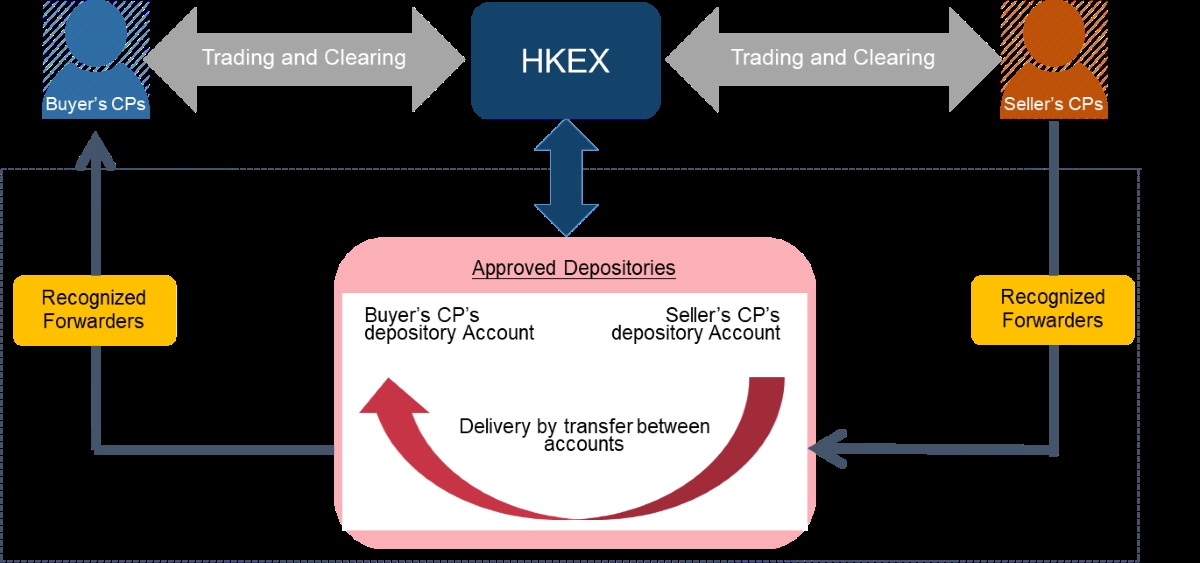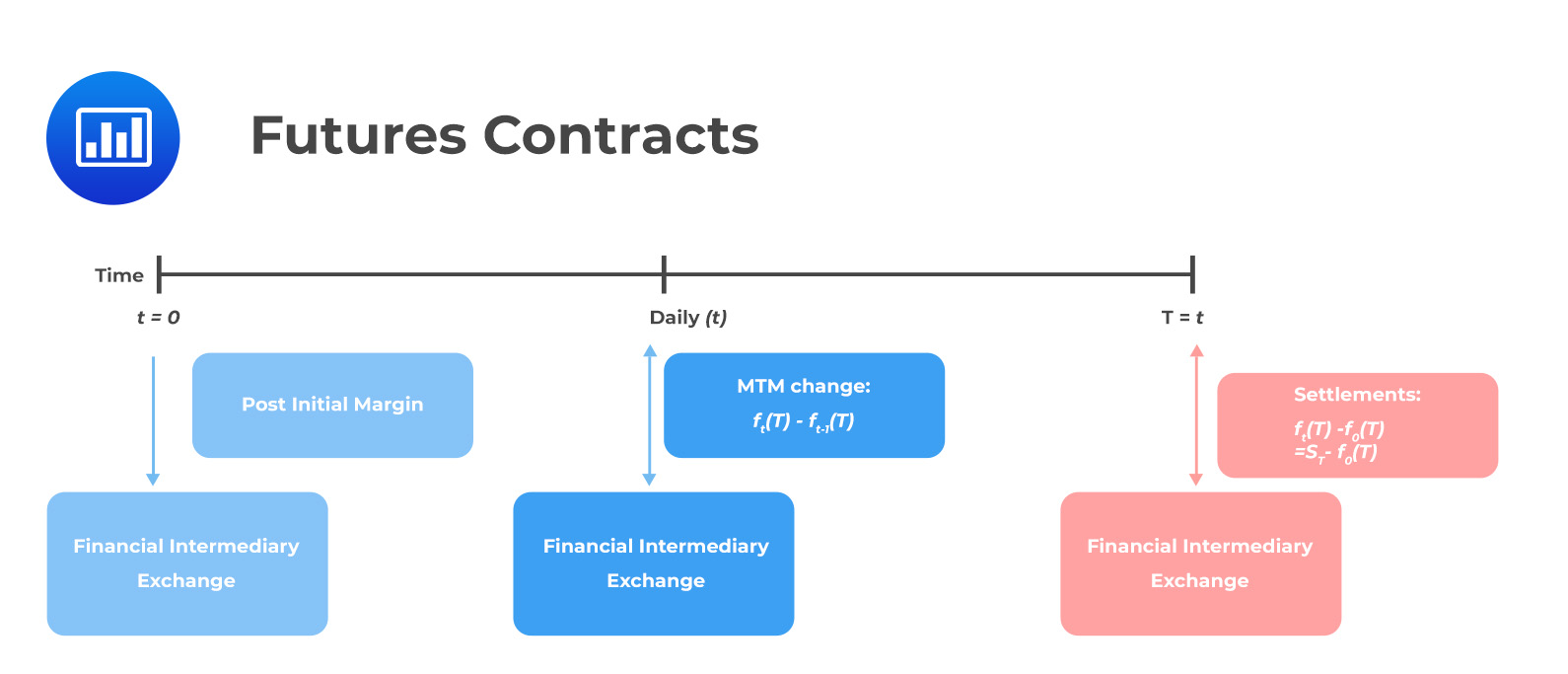

Finance
How To Find Bookkeeping Clients
Modified: December 30, 2023
Learn how to find bookkeeping clients and grow your finance business. Implement effective strategies and attract new clients to boost your revenue.
(Many of the links in this article redirect to a specific reviewed product. Your purchase of these products through affiliate links helps to generate commission for LiveWell, at no extra cost. Learn more)
Table of Contents
- Introduction
- Identifying Your Target Audience
- Building a Strong Online Presence
- Utilizing Social Media Platforms
- Networking in Local Business Communities
- Offering Specialized Bookkeeping Services
- Providing Outstanding Customer Service
- Leveraging Referrals and Word-of-Mouth
- Creating and Promoting Content
- Utilizing Direct Mail Marketing
- Joining Professional Associations
- Monitoring Online Reviews and Ratings
- Tracking and Analyzing Key Metrics
- Conclusion
Introduction
Welcome to the world of bookkeeping! If you’re a bookkeeper looking to grow your client base, you’ve come to the right place. Finding bookkeeping clients can sometimes be a challenge, especially in a competitive market. However, with the right strategies and a strong online presence, you can attract and retain clients who value your expertise and services.
In this article, we will explore various methods to help you find bookkeeping clients. From identifying your target audience to leveraging social media platforms and offering specialized services, we will cover a range of strategies to help you expand your client base and establish yourself as a trusted bookkeeping professional.
Before we dive into the strategies, let’s take a moment to understand the importance of identifying your target audience. This step is essential as it allows you to tailor your marketing efforts to attract clients who will benefit the most from your services. By focusing on a specific niche or industry, you can position yourself as an expert in that area, making it easier to attract clients seeking specialized bookkeeping expertise.
It’s also important to note that building a strong online presence is crucial in today’s digital age. With the majority of people turning to the internet to search for services, having a professional website and utilizing social media can significantly expand your reach and attract new clients. Additionally, offering outstanding customer service and leveraging referrals can help you build a solid reputation and establish long-term client relationships.
Throughout this article, we will delve into each strategy in detail, providing practical tips and insights to help you effectively find bookkeeping clients. Let’s get started on this exciting journey to expand your bookkeeping business!
Identifying Your Target Audience
One of the most crucial steps in finding bookkeeping clients is identifying your target audience. By understanding who your ideal clients are, you can tailor your marketing efforts and communications to resonate with them effectively. Here are some strategies to help you identify your target audience:
- Research your current clients: Start by analyzing your existing client base. Look for commonalities, such as industry, size of the business, location, or specific bookkeeping needs. This will give you insights into the types of clients who are already benefiting from your services.
- Conduct market research: Dive into market research to gain a deeper understanding of your industry. Identify trends, pain points, and challenges that business owners and entrepreneurs face when it comes to bookkeeping. This information will help you position your services as a solution to their specific needs.
- Consider your expertise: Reflect on your expertise and experience in different areas of bookkeeping. Are you skilled at working with small businesses, freelancers, or specific industries? Understanding your strengths will allow you to target clients who can benefit the most from your specialized services.
- Review competitors: Take a look at your competitors and the types of clients they serve. Identify any gaps or untapped markets that you can focus on. This will help you differentiate yourself and attract clients who are looking for a unique bookkeeping experience.
Once you have identified your target audience, it’s important to create buyer personas. A buyer persona is a semi-fictional representation of your ideal client, based on research and real data. It includes demographic information, characteristics, pain points, and goals. Creating buyer personas will guide your marketing efforts and enable you to craft messages that resonate with your target audience.
By identifying your target audience and creating buyer personas, you can streamline your marketing efforts and ensure that your message reaches the right people. This focused approach will help you attract clients who align with your services and are more likely to convert into long-term partnerships. Remember, understanding your target audience is the foundation for successful client acquisition in the bookkeeping industry.
Building a Strong Online Presence
In today’s digital age, having a strong online presence is essential for finding bookkeeping clients. A professional and optimized online presence not only helps you showcase your expertise but also makes it easy for potential clients to find and contact you. Here are some strategies to build a strong online presence:
- Create a professional website: Your website is the foundation of your online presence. It should be well-designed, user-friendly, and optimized for search engines. Include information about your bookkeeping services, areas of expertise, and contact details. If possible, showcase testimonials or case studies from satisfied clients to build credibility.
- Optimize your website for search engines: Implement search engine optimization (SEO) techniques to improve your website’s visibility in search engine results. Conduct keyword research and incorporate relevant keywords throughout your website content, meta tags, and headings. This will increase the chances of your website ranking higher in search engine results when potential clients search for bookkeeping services.
- Create valuable content: Blogging or creating informative content related to bookkeeping can establish you as an expert in your field. Share tips, best practices, and industry insights through blog posts, articles, or videos. This not only showcases your knowledge but also attracts potential clients who may find your content helpful and informative.
- Utilize social media platforms: Social media platforms like LinkedIn, Facebook, and Twitter can be powerful tools for connecting with potential clients. Create professional profiles on these platforms and share relevant content, engage with your audience, and join industry-specific groups or communities. This allows you to build a network of connections and establish yourself as a trusted bookkeeping professional.
- Encourage online reviews and testimonials: Positive reviews and testimonials can significantly impact your online reputation. Encourage satisfied clients to leave reviews on platforms like Google My Business, Yelp, or industry-specific directories. Display these reviews on your website to build trust and credibility among potential clients.
Remember, building a strong online presence takes time and consistent effort. Regularly update your website, engage with your audience on social media, and continue creating valuable content. The more visible and accessible you are online, the higher the chances of attracting bookkeeping clients who are actively seeking your expertise.
Utilizing Social Media Platforms
Social media platforms have become powerful marketing tools for businesses of all sizes, including bookkeepers. Utilizing social media platforms effectively can help you reach and engage with a wide audience, showcase your expertise, and attract bookkeeping clients. Here are some strategies to make the most of social media:
- Choose the right platforms: Start by identifying which social media platforms are most relevant to your target audience. For example, LinkedIn is a professional networking platform that can be ideal for connecting with other professionals and businesses. Facebook and Instagram can be effective for reaching a broader audience. Focus your efforts on the platforms where your potential clients are most active.
- Create a professional profile: Optimize your social media profiles by including a clear and professional profile picture, a concise and engaging bio, and a link to your website or contact information. Ensure that your profiles accurately reflect your bookkeeping services and expertise.
- Share valuable and relevant content: Regularly share informative and engaging content related to bookkeeping. This could include tips for financial management, updates on tax regulations, or industry insights. The goal is to position yourself as a knowledgeable and trusted resource in the field. Use a mix of text, images, and videos to keep your content diverse and engaging.
- Engage with your audience: Social media is all about building connections and fostering conversations. Respond to comments, questions, and messages promptly. Engage with other professionals and businesses in your industry by liking, commenting, and sharing their content. This helps to build relationships and expand your network.
- Showcase your expertise through case studies or success stories: Share success stories of how your bookkeeping services have helped businesses achieve their financial goals. Case studies or testimonials from satisfied clients add credibility and attract potential clients who can relate to the challenges faced by the businesses you have worked with.
- Run targeted ads: Social media platforms offer advertising options that allow you to target specific demographics, interests, and locations. Consider running targeted ads to reach a wider audience and increase your visibility among potential bookkeeping clients.
Consistency is key when utilizing social media platforms. Create a social media content calendar to plan and schedule your posts. This will help you maintain a regular presence and ensure that you consistently provide valuable content to your audience. By utilizing social media effectively, you can establish your authority in the field of bookkeeping, build connections, and ultimately attract new clients.
Networking in Local Business Communities
Networking in local business communities is an effective way to connect with potential bookkeeping clients and establish valuable relationships. By immersing yourself in local business events and organizations, you can increase your visibility and engage with business owners who may require your bookkeeping services. Here are some strategies for networking in local business communities:
- Attend business events: Look for local networking events, seminars, or workshops related to finance, entrepreneurship, or small business development. These events often attract a diverse range of business owners and professionals who may be in need of bookkeeping services.
- Join local business organizations: Become a member of local business organizations, such as chambers of commerce or industry-specific associations. These organizations provide opportunities to network with other professionals and gain exposure within the local business community.
- Participate in community activities: Get involved in community activities and sponsor local events. This not only showcases your commitment to the community but also allows you to connect with business owners and potential clients who share similar values.
- Offer to speak at events or host workshops: Position yourself as an expert in bookkeeping by offering to speak at local business events or host workshops on financial management topics. This provides a platform to showcase your knowledge and expertise while connecting with an engaged audience.
- Exchange business cards and follow up: When networking, be sure to exchange business cards with the individuals you meet. Follow up with a personalized message or email to stay top of mind and continue building the relationship.
- Build strategic partnerships: Identify other professionals who complement your bookkeeping services, such as accountants, financial planners, or business consultants. Collaborate with them to offer comprehensive solutions to clients, and refer clients to each other when appropriate.
When networking in local business communities, it’s important to approach conversations with a genuine interest in the other person’s business and needs. Building authentic relationships is key to establishing trust and credibility. Be prepared to share your expertise, but also be open to learning from others and exploring ways to collaborate.
Remember, networking is not just about acquiring clients directly, but also about building a network of professionals who can refer clients to you or provide valuable resources. By actively participating in local business communities, you can expand your reach, nurture relationships, and create opportunities for new bookkeeping clients.
Offering Specialized Bookkeeping Services
One effective way to differentiate yourself and attract bookkeeping clients is by offering specialized services that cater to specific industries or niche markets. By positioning yourself as an expert in a particular area, you can tap into a client base that values specialized knowledge and skills. Here are some strategies for offering specialized bookkeeping services:
- Identify industries or niche markets: Research and identify industries or niche markets that have unique bookkeeping needs. This could include sectors such as healthcare, real estate, e-commerce, or creative industries. Understanding the specific challenges and requirements of these industries will allow you to tailor your services to their needs.
- Educate yourself: Invest time and effort in learning about the specific accounting practices, regulations, and software that are prevalent in the industries you target. This will enable you to offer tailored solutions and position yourself as a knowledgeable expert in those fields.
- Highlight industry expertise: Update your website and marketing materials to showcase your specialized knowledge and experience in the targeted industries. Use case studies or success stories to illustrate how your expertise has made a positive impact on businesses within those industries.
- Create industry-specific resources: Develop industry-specific resources, such as guides, e-books, or blog posts, that provide valuable insights and tips related to bookkeeping in those industries. This positions you as a go-to resource for businesses operating in those sectors.
- Collaborate with industry professionals: Build relationships with other professionals in the targeted industries, such as lawyers, consultants, or industry associations. By collaborating and offering integrated services, you can provide comprehensive solutions to clients and enhance your credibility within those industries.
- Attend industry-specific events: Participate in trade shows, conferences, or networking events that are specific to the industries you target. These events provide opportunities to connect directly with potential clients and establish yourself as a specialized bookkeeping expert.
Remember, offering specialized bookkeeping services requires ongoing education and staying up-to-date with industry trends and changes. It’s important to continuously refine your skills and adapt your services to evolving industry needs.
By offering specialized bookkeeping services, you can position yourself as a valuable asset to businesses in specific industries and stand out from your competitors. Your expertise and tailored solutions will attract clients who recognize the value of working with a bookkeeper who understands the intricacies of their industry.
Providing Outstanding Customer Service
When it comes to finding bookkeeping clients and retaining them for the long term, providing outstanding customer service is key. Exceptional customer service not only differentiates you from your competitors but also fosters trust, loyalty, and positive referrals. Here are some strategies for providing outstanding customer service as a bookkeeper:
- Be responsive and accessible: Respond promptly to client inquiries, whether it’s via phone, email, or social media. Make it easy for clients to reach you and be available to address their questions or concerns. Demonstrating a high level of responsiveness shows that you value your clients’ time and prioritize their needs.
- Listen actively: Take the time to listen actively to your clients’ goals, challenges, and concerns. Understand their unique business needs and tailor your bookkeeping services to meet those needs. By truly understanding your clients, you can provide personalized solutions and build a stronger client relationship.
- Communicate clearly and effectively: Avoid using jargon or complex accounting terms when communicating with clients. Instead, explain concepts and reports in a clear and understandable manner. Regularly update clients on the progress of their financial records and any important insights or recommendations.
- Go the extra mile: Surprise and delight your clients by going above and beyond their expectations. Offer additional value-added services or provide useful resources that can help them improve their financial management. Showing that you genuinely care about their success will create a positive impression and strengthen your client relationships.
- Provide proactive advice: Don’t just limit yourself to the numbers. Offer proactive advice and guidance to help your clients improve their financial well-being. Whether it’s suggesting cost-saving strategies, identifying areas for growth, or highlighting potential risks, your insights and expertise can significantly impact their business success.
- Adapt to their preferred communication style: Some clients may prefer face-to-face meetings, while others may prefer digital communication. Adapt to their preferred communication style to ensure a seamless and positive experience. Being flexible and accommodating shows that you are committed to meeting their individual needs.
- Continuously seek feedback: Regularly ask for feedback from your clients to gauge their satisfaction levels. This demonstrates that you are proactive in improving your services and shows that you value their opinions. Use their feedback to make necessary adjustments and enhance your customer service approach.
Remember, providing outstanding customer service is an ongoing effort. It requires a genuine dedication to meeting your clients’ needs and continuously striving to surpass their expectations. By consistently delivering exceptional customer service, you will create loyal clients who not only stay with your bookkeeping services but also refer you to others in their network.
Leveraging Referrals and Word-of-Mouth
Referrals and word-of-mouth are powerful tools for finding bookkeeping clients. People trust recommendations from friends, family, or colleagues, making them more likely to seek out your services based on positive experiences shared by others. Here are some strategies to leverage referrals and generate valuable word-of-mouth:
- Deliver exceptional service: The foundation for generating referrals is providing outstanding service that exceeds your clients’ expectations. When your clients are highly satisfied with your bookkeeping services, they are more likely to recommend you to others.
- Ask for referrals: Don’t be afraid to proactively ask your satisfied clients for referrals. Let them know that you value their business and would appreciate any referrals they can provide. Be specific about the type of clients you are looking to serve so they have a clear understanding of who would be a good fit for your services.
- Incentivize referrals: Consider offering incentives to clients who refer others to your bookkeeping services. You can provide discounts on future services, gift cards, or other rewards as a token of appreciation for their referrals. This encourages your clients to actively promote your services and increases the likelihood of generating referrals.
- Develop strategic partnerships: Collaborate with other professionals, such as accountants, financial planners, or business consultants, who can refer clients to you when they have bookkeeping needs. Building strong relationships with professionals in complementary fields expands your network and increases your referral potential.
- Showcase client testimonials: Feature testimonials and positive reviews from satisfied clients on your website and marketing materials. Potential clients will be more likely to trust your services when they see social proof from others who have had a positive experience working with you.
- Participate in networking events: Attend industry-specific networking events and actively engage with other professionals. By building connections and fostering relationships, you increase your chances of receiving referrals from professionals who work with businesses that may need bookkeeping services.
- Provide referral incentives: Consider implementing a referral program where you provide incentives to clients who refer others to your services. This could include a percentage of revenue generated from the referred client’s business or a discount on future services. By rewarding clients for their referrals, you encourage them to continue recommending your services.
Remember to express gratitude to those who provide referrals by sending a thank you note or small gift. Showing appreciation not only strengthens the relationship with the referring client but also encourages them to continue referring others to your bookkeeping services.
Leveraging referrals and word-of-mouth can significantly expand your client base. By consistently delivering exceptional service, actively seeking referrals, and nurturing professional relationships, you can tap into the power of referrals and generate valuable word-of-mouth recommendations.
Creating and Promoting Content
Creating and promoting content is a effective way to establish your expertise in bookkeeping and attract potential clients. By offering valuable and informative content, you can showcase your knowledge, build credibility, and engage with your target audience. Here are some strategies for creating and promoting content:
- Identify relevant topics: Research the needs and challenges of your target audience to identify topics that would resonate with them. Consider addressing commonly asked questions, providing insights on industry trends, or offering practical tips and strategies related to bookkeeping.
- Create different formats of content: Experiment with different formats such as blog posts, videos, infographics, or podcasts to cater to different preferences and learning styles of your audience. This variety keeps your content fresh and engaging.
- Optimize for search engines: Incorporate relevant keywords in your content to improve its visibility on search engine result pages. This increases the chances of your content being discovered by potential clients searching for bookkeeping services or related topics.
- Share on your website and social media: Publish your content on your website’s blog section and share it across your social media platforms. This helps drive traffic to your website and expands your reach to a wider audience.
- Guest post on industry websites or blogs: Offer to create guest posts for other websites or online publications that cater to your target audience. This allows you to tap into their existing readership and gain exposure as a credible bookkeeping expert.
- Repurpose content: Repurpose your existing content into different formats or mediums to reach a larger audience. For example, you can turn a blog post into a video or create an infographic summarizing key points from an article. This maximizes the value of your content and extends its reach.
- Engage with your audience: Encourage comments, questions, and discussions on your content. Take the time to respond to comments, provide further insights, and engage with your audience. This fosters a sense of community and positions you as a helpful resource in the bookkeeping industry.
- Collaborate with other professionals: Partner with other professionals, such as accountants, business coaches, or tax experts, to create collaborative content. This exposes you to their network and provides an opportunity to tap into a wider audience.
Consistency is key when it comes to content creation. Develop a content calendar and commit to a regular publishing schedule. This ensures that your audience knows when to expect new content from you and helps build trust and loyalty.
By creating and promoting valuable content, you establish yourself as a thought leader in the bookkeeping industry. This attracts potential clients who value your expertise and positions you as a trusted resource, driving organic growth for your bookkeeping business.
Utilizing Direct Mail Marketing
In a world dominated by digital marketing, direct mail can be a powerful strategy to stand out and connect with potential bookkeeping clients. Direct mail offers a tangible and personalized approach that can grab attention and leave a lasting impression. Here are some strategies for utilizing direct mail marketing:
- Targeted mailing lists: Start by building a targeted mailing list of businesses or individuals who are likely to require bookkeeping services. This could include small businesses, startups, freelancers, or specific industries that align with your expertise.
- Create compelling content: Design eye-catching and informative content for your direct mail pieces. Highlight the benefits of your bookkeeping services, showcase success stories or testimonials, and include clear calls-to-action that encourage recipients to take the next step.
- Personalize your mailings: Address each recipient by name and customize the content based on their specific business needs. Personalization adds a touch of authenticity and makes the recipient feel valued.
- Include a call-to-action: Clearly state what action you want the recipient to take. Whether it’s visiting your website, scheduling a consultation, or contacting you for more information, make it easy for them to take the next step in engaging with your services.
- Use high-quality materials: Invest in high-quality paper, printing, and design to create a professional impression. A well-designed and visually appealing direct mail piece is more likely to capture attention and make a positive impact.
- Track and analyze your results: Implement tracking mechanisms such as unique URLs, QR codes, or phone numbers to measure the effectiveness of your direct mail campaigns. This data will help you evaluate the return on investment and make adjustments for future mailings.
- Follow up with recipients: Direct mail can act as an icebreaker to initiate further communication. Follow up with recipients through phone calls or personalized emails to build on the initial connection made through the direct mail piece.
- Create a consistent brand experience: Ensure that your direct mail pieces align with your branding. This consistency creates a cohesive brand experience and reinforces your professionalism and attention to detail.
Incorporating direct mail into your marketing mix can give you a competitive edge and help you reach potential bookkeeping clients in a personalized way. However, it’s important to note that direct mail marketing requires careful planning and coordination to ensure that your efforts are targeted and effective.
While digital marketing continues to dominate, direct mail can serve as a complementary strategy to capture the attention of your target audience and make a memorable impression. By utilizing direct mail effectively, you can generate leads and increase awareness of your bookkeeping services among potential clients.
Joining Professional Associations
Joining professional associations can be a valuable step towards finding bookkeeping clients and establishing yourself as a trusted and credible professional. Professional associations offer networking opportunities, educational resources, and a platform to showcase your expertise. Here are some reasons why joining professional associations can be beneficial:
- Networking opportunities: Professional associations provide a platform to connect with other bookkeepers, accountants, and professionals in related fields. Networking with peers and industry leaders can lead to valuable referrals, partnerships, and collaborations.
- Industry insights and education: Professional associations often offer educational events, workshops, and conferences that provide insights into industry trends, updates, and best practices. Continuous learning through these channels allows you to stay up-to-date with the latest developments in the field of bookkeeping.
- Credibility and trust: Being a member of a respected professional association adds credibility to your brand and instills confidence in potential clients. It demonstrates your commitment to professional development, ethical practices, and adherence to industry standards.
- Access to resources: Professional associations typically provide access to a wide range of resources such as industry-specific templates, benchmarking data, research reports, and publications. These resources can help you enhance your skills, streamline your processes, and provide value-added services to your clients.
- Marketing and promotional opportunities: Many professional associations offer opportunities to showcase your expertise, such as speaking engagements, writing articles for association publications, or participating in panel discussions. This exposure can help you reach a wider audience and position yourself as a thought leader in the bookkeeping industry.
- Industry advocacy: Professional associations often advocate for the interests of their members and the industry as a whole. By joining these associations, you contribute to collective efforts in shaping policies, regulations, and standards that affect the bookkeeping profession.
When choosing which professional associations to join, consider factors such as reputation, relevance to your niche or industry, membership benefits, and the level of active engagement within the association. Participating actively in association activities, attending events, contributing to committees, and building relationships with fellow members can maximize the benefits you gain from being a member.
Remember, joining professional associations is not just about gaining clients, but also about continuous growth and professional development. By becoming an active member, you demonstrate your commitment to excellence and contribute to the advancement of the bookkeeping profession as a whole.
Monitoring Online Reviews and Ratings
In today’s digital world, online reviews and ratings play a significant role in influencing consumer decisions. As a bookkeeper, monitoring and managing your online reputation is essential for attracting clients and maintaining a positive image. Here are some reasons why monitoring online reviews and ratings is crucial:
- Impact on credibility: Positive online reviews and ratings build credibility and trust. Potential clients are more likely to choose a bookkeeper with a strong reputation for providing quality services. Regularly monitoring and responding to reviews shows that you value feedback and are committed to delivering exceptional customer service.
- Opportunity for improvement: Online reviews provide valuable insights into areas where you excel and areas that may need improvement. By actively monitoring reviews, you have the opportunity to identify patterns or recurring feedback that can help you enhance your services and address any potential issues.
- Addressing negative feedback: Not all reviews will be positive, and that’s okay. Negative feedback can provide you with an opportunity to showcase your professionalism and dedication to customer satisfaction. Responding promptly and professionally to negative reviews demonstrates your commitment to resolving issues and can help mitigate any potential damage to your reputation.
- Encouraging positive reviews: Satisfied clients may not always think to leave a review, which is why it’s important to proactively encourage them to do so. Consider sending personalized follow-up emails or providing a link to review platforms where clients can share their experiences. The more positive reviews you accumulate, the stronger your online reputation becomes.
- Monitoring review platforms: Regularly check popular review platforms relevant to your industry, such as Google My Business, Yelp, or industry-specific directories, for new reviews. Set up notifications or use online reputation management tools to stay informed about any new feedback that comes in.
- Engaging with reviewers: Engage with both positive and negative reviewers by responding to their feedback. Express your gratitude for positive reviews and address any concerns expressed in negative reviews. Demonstrating that you value client feedback and are responsive to their needs can help build a positive image for your bookkeeping services.
Remember to remain professional and respectful in your responses to reviews, whether they are positive or negative. Use these interactions as an opportunity to build relationships, address concerns, and showcase your commitment to exceptional customer service.
Monitoring online reviews and ratings allows you to actively manage your online reputation and make informed decisions to enhance your services. By proactively engaging with clients through online reviews, you can strengthen your credibility, attract new clients, and cultivate a positive brand image in the bookkeeping industry.
Tracking and Analyzing Key Metrics
Tracking and analyzing key metrics is an essential aspect of growing your bookkeeping business. By monitoring and assessing the right data, you can gain insights into the effectiveness of your marketing strategies, client acquisition channels, and overall business performance. Here are some key metrics to track and analyze:
- Client Acquisition Cost (CAC): Calculate how much it costs you to acquire a new client. This includes expenses related to marketing, advertising, and sales efforts. Monitoring your CAC helps you allocate resources efficiently and determine the most effective marketing channels.
- Conversion Rate: Measure the percentage of potential leads or prospects that convert into actual clients. By tracking your conversion rate, you can identify areas for improvement in your sales and marketing processes and optimize your strategies to increase conversions.
- Retention Rate: Analyze the percentage of clients that continue to use your bookkeeping services over time. A higher retention rate indicates that your services are meeting clients’ needs and that they value your expertise. Focus on strategies to improve client retention, such as providing excellent customer service and maintaining regular communication.
- Revenue and Profitability: Keep track of your revenue and profitability to evaluate the financial health of your business. Monitoring these metrics helps you understand the overall performance of your bookkeeping services and make informed decisions to drive growth.
- Website Analytics: Utilize tools like Google Analytics to track website traffic, page views, and user behavior. Analyzing this data helps you understand how users are finding your website, which pages are performing well, and enables you to make data-driven optimizations to improve user experience and conversion rates.
- Referral Sources: Identify the sources that are generating the most referrals and conversions. Whether it’s through direct referrals, online platforms, or professional networks, tracking referral sources helps you allocate resources effectively and nurture relationships with valuable referral partners.
- Social Media Engagement: Monitor your social media engagement metrics, including likes, comments, shares, and click-through rates. This helps you understand which platforms and content resonate with your audience, allowing you to tailor your social media strategies for better engagement and reach.
- Customer Satisfaction: Implement surveys or feedback mechanisms to gauge customer satisfaction. Regularly collecting feedback directly from clients allows you to identify areas for improvement, address any issues promptly, and deliver exceptional customer service.
Once you start tracking these key metrics, analyze the data to gain meaningful insights. Identify trends, patterns, and areas that need improvement. Use this information to make data-driven decisions, refine your marketing strategies, and improve the overall performance of your bookkeeping business.
Remember, tracking and analyzing key metrics should be an ongoing process. Regularly review and update the metrics you track as your business evolves and adjust your strategies accordingly. By leveraging data to inform your decision-making, you can continuously optimize your bookkeeping services and drive long-term success.
Conclusion
As a bookkeeper looking to grow your client base, implementing effective strategies to attract and retain clients is crucial. By identifying your target audience, building a strong online presence, utilizing social media, networking in local business communities, offering specialized services, providing outstanding customer service, leveraging referrals, creating and promoting content, utilizing direct mail marketing, joining professional associations, monitoring online reviews and ratings, and tracking key metrics, you can position yourself as a trusted expert in the bookkeeping industry.
Through targeted marketing efforts, personalized interactions, and a commitment to delivering exceptional service, you can build a solid reputation and attract clients who value your expertise and the quality of your work. By staying informed about industry trends, continuously learning, and adapting to the evolving needs of your clients, you will stay ahead of the competition and ensure the long-term growth and success of your bookkeeping business.
Remember, client acquisition and retention require consistent effort, dedication, and a customer-centric approach. As you implement these strategies, stay focused, track your progress, and make adjustments as needed. Embrace the opportunities provided by digital tools and platforms while also capitalizing on the power of networking and personal connections in your local business community.
By following these strategies, you can establish yourself as a trusted bookkeeping professional, attract a loyal client base, and cultivate a thriving bookkeeping business. As you embark on this journey, remain committed to providing exceptional service, staying current with industry trends, and continuously expanding your knowledge and skills. With perseverance and determination, your bookkeeping practice will flourish, and you will achieve your goals in the exciting world of finance.














